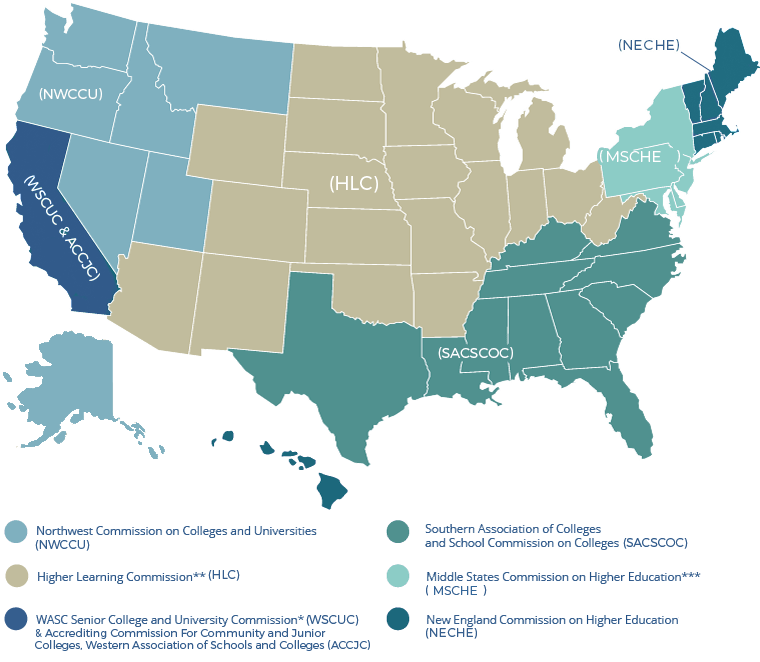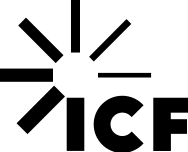CFPB RDHE Revised Study Design
Generic Information Collection Plan for Qualitative Consumer Education, Engagement and Experience Information Collections
CFPB RDHE Revised Study Design
OMB: 3170-0036
-

Black Students in Higher Education: Facilitators and Barriers to Completion
Revised Study Plan for the Racial Disparities in Higher Education Project
Submitted to:
Consumer Financial Protection Bureau
1700 G Street, NW
Washington, DC 20552Submitted by:
ICF Incorporated, LLC
9300 Lee Highway
Fairfax, VA 22031
February 8, 2022

Table of Contents
Proposed Study Plan Revision 2
Selection of Geographic Areas for Study 4
Selection of Institution Strategies/Initiatives 6
Interview/Focus Group Logistics 10
Interview/Focus Group Data Analysis 10
Use of Subject Matter Experts/Key Informants from the Field 11
Proposed Study Plan Revision
This revised study plan maps out the research questions used to guide the study as well as the data collection and analytical methodologies. Data collected and analyzed will be used to understand and expand upon the findings presented in the literature and provide policymakers and professionals with information, research, strategies, and promising practices for supporting college completion for Black students.
Objectives
To inform and support policymakers, institutions of higher education (IHEs), and K–12 professionals by developing and sharing information, research, promising practices, and effective strategies to help identify and remove barriers to college completion, and
To identify new opportunities for CFPB to support efforts to increase the national focus on encouraging students who enroll in higher education to complete their college degree
Research Questions
What are the major facilitators (e.g., personal, institutional, community factors; specific programs, initiatives, or supports) to college completion for Black students?
What are the major barriers (e.g., personal, institutional, community factors) to college completion for Black students?
How is persistence and completion different for Black students at historically Black colleges and universities and predominantly Black institutions compared with those attending predominantly white institutions?
What postsecondary institution initiatives or strategies support Black student persistence and completion? How are these initiatives or strategies being implemented? What are institutions’ lessons learned regarding implementation and scaling of these initiatives or strategies?
What are issues of noncompletion faced by former postsecondary students and former Black students who did not complete a degree?
Data Collection Methodology
ICF will begin an exploration into the research questions through an environmental scan to review existing literature and reports that pertain to different facets of the study. ICF will then collect new data via focus groups as the primary data collection strategy. Focus group methodology is especially well-suited for exploratory research into participants’ perceptions and attitudes. The group setting allows participants to build on what others have shared and to compare their own ideas and experiences with those of other participants. The discussion might produce insights that no individual would have come up with alone. It also provides an opportunity to learn how a target audience talks about a subject and the vocabulary they use, to ensure that any future resources that may be developed as a result of this research use plain language with which they are familiar. Further, focus groups allow for the collection of input from a larger number of subjects in a more efficient and cost-effective manner. We additionally propose conducting interviews on a more limited basis to accommodate potential scheduling challenges with some participants.
Exhibit 1 presents the major study components and research questions as well as how different data collection activities align with those components and questions. The study components and associated activities presented in the first row consist of the primary study while the component and associated question/activities in the second row consist of the case studies. The primary study has a regional component, with a focus on collecting new data, via focus groups, from former students who attended college in six different states across the U.S. The case studies are not regionally limited.
Exhibit 1. Alignment of Study Components, Research Questions, and Data Sources
Study Components |
Research Questions
|
Data Sources |
Study components: facilitators and barriers to college completion for Black former students (Year 1) & issues of non-completion for Black former students (Year 2) |
RQ1: What are the major facilitators (e.g., personal, institutional, community factors; specific programs, initiatives, or supports) to college completion for Black students? |
|
RQ2: What are the major barriers (e.g., personal, institutional, community factors) to college completion for Black students? |
||
RQ3: How is persistence and completion different for Black students at historically Black colleges and universities and predominantly Black institutions compared with those attending predominantly white institutions? |
||
RQ5: What are issues of noncompletion faced by former postsecondary students and former Black students who did not complete a degree? |
||
Study component: retention initiatives and strategies that support Black student persistence and completion of Black students (Year 1) |
RQ4. What postsecondary institution initiatives or strategies support Black student persistence and completion? How are these initiatives or strategies being implemented? What are institutions’ lessons learned regarding implementation of these initiatives or strategies? |
|
Selection of Geographic Areas for Study
ICF selected six diverse geographic areas for the study. These areas represent the major geographic regions of the United States. This includes a mixture of states that offer free community college grants or tuition waivers as well as those that do not. There are 18 states that provide tuition-free community college programs for eligible students: Arkansas, California, Connecticut, Delaware, Hawaii, Indiana, Kentucky, Maryland, Missouri, Montana, New York, Nevada, Oklahoma, Oregon, Rhode Island, Tennessee, Virginia, and Washington. The City of Boston, Massachusetts and Seattle, WA also have a program.1 This also includes a mixture of states that have HBCUs/PBIs and those that do not, with variations regarding statewide Black student enrollment size at HBCUs/PBIs.2,3 For example, Georgia and Alabama both have the largest numbers of HBCUs/PBIs and largest statewide enrollments of Black students at HBCUs/PBIs, whereas states such as Colorado and Connecticut have no HBCUs/PBIs.
The United States is divided into six accreditation regions: New England, Middle States, North Central, Southern, Western and Northwest. For this exercise of selecting regions, ICF combined two regions and split one region, and the resulting six regions are shown in the table portion of Exhibit 2 along with the number and abbreviation of state/territories included in each of the six regions identified for this study.
Exhibit 2. Six Accreditation Regions in the United States
Accreditation
Organization
#
States Territories/Outlying
Areas
New England (NECHE)
6
CT, MA, RI, ME, NH, VT
Middle States (MSCHE)
5 +3
MD, NY, DE, NJ, PA
DC, PR, VI
North Central (HLC) –
east
10
AR, IA, IL, IN, MI, MN, MO,
OH, WI, WV
North Central (HLC) –
west
9
AZ, CO, KS, NE, ND, NM, OK,
SD, WY
Southern (SACSCOC)
11
AL, FL, GA, KY, LA, MS, NC,
SC, TN, TX, VA
Northwest (NWCCU) and
Western (WSCUC & ACCJC)
9 +6
AK, CA, HI, ID, MT, NV, OR,
UT, WA AS, GU, MP, PW, FM, MH

Source: Council for Higher Education Accreditation: https://www.chea.org/regional-accrediting-organizations-accreditor-type
ICF reviewed demographic data from the states in each of these regions and selected specific states within the six regions to focus on during the study: CT, MD, OH, CO, GA (with AL), and CA. Of these, CT and MD are two states that offer free community college grants or tuition waivers. In addition, GA (with AL) and MD are states with large numbers of HBCUs/PBIs and a relatively large total statewide Black student enrollment at HBCUs/PBIs. These states are also those that have a sizeable Black population in relation to the overall population in the region and have some variation regarding college or graduate school enrollment and the educational attainment of the Black population 25 years and over (focusing on the percentage with “some college or associate’s degree) (see Appendix).
Selection of Institution Strategies/Initiatives
The case studies will feature postsecondary institution strategies or initiatives that are contributing to an increase in Black student persistence and completion. Potential institutions to be included in the case studies will be identified based on findings from the environmental scan and other research as well as input from subject matter experts/key informants working in the field of higher education with a focus on Black student persistence and completion. The goal will be to select recently implemented institution strategies and initiatives that are having positive effects on Black student persistence and completion, but which may not be widely known or documented in the literature. The case studies will aim to contribute new, needed information about innovative strategies and initiatives that may be easily scaled to other postsecondary institutions, with an emphasis of showing how to implement these initiatives/strategies.
ICF will identify a list of potential strategies/initiatives and work with CFPB staff to finalize the list for further exploration through the case studies.
Participant Selection
ICF envisions conducting interviews/focus groups with the following three categories of participants (see Exhibit 3 for more details):
256 former postsecondary students (120 completers, 120 noncompleters, and 16 noncompleters who enrolled but never attended) from across the six selected geographic regions who can speak to facilitators and barriers to completing a degree and, if applicable, issues experienced with noncompletion
This will include 32 focus groups total, with 30 region- and institution-specific focus groups (4-8 focus groups per region) and 2 additional cross-regional groups. This includes 17 focus groups with noncompleters (including two focus groups with those noncompleters who enrolled but never started college) and 15 focus groups with completers. 6 out of 30 (20%) institution-specific focus groups will be with former students who attended HBCUs, which is an oversampling, considering that 10% of Black students attend HBCUs.4 Finally, 12 out of 30 (40%) institution-specific focus groups will be with students who attended 2-year colleges, an oversampling of the 34% of Black students who enroll in 2-year colleges, but offering 2-year focus group options in each region.5
30 postsecondary institution professionals from across the six selected geographic region who understand facilitators and barriers to completion for Black students (6 focus groups total, 1 focus group per region)
15–24 postsecondary institution leaders and point persons who can speak to their institution’s initiatives/strategies to support Black student completion as well as the process for implementing the initiatives/strategies and any lessons learned (3 leaders in individual/small group interviews from 5-8 institutions)
The third category of participants—the postsecondary institution leaders—will not necessarily be tied to one of the six selected geographic areas; instead, ICF will identify 5–8 institutions implementing strategies/initiatives that are contributing to Black student completion and then recruit participants from those institutions (regardless of the geographic region of those programs).
Exhibit 3 maps out the different the number of focus groups and total number of participants (from different regions, if applicable) for each stakeholder group.
Exhibit 3. Interview/Focus Group Plan
Stakeholder Group |
Interviews/Focus Groups |
Total Participants |
|
Former postsecondary students – completers & noncompleters |
Each focus group assumes an average of 8 participants.
New England (CT) – 4 FGs
Middle States (MD) – 6 FGs
North Central – east (OH) – 4 FGs
North Central – west (CO) – 4 FGs
Southern (GA and AL) – 8 FGs
Northwest/Western (CA) – 4 FGs
Additional groups (2 total, from any region)
|
32-64 per region; 256 overall, including 120 completers, 120 noncompleters, and 16 noncompleters who enrolled but never attended
|
|
Postsecondary institution professionals |
6 focus groups (across 6 regions) of 4-6 participants each |
30 |
|
Postsecondary institution leaders/administrators |
Will conduct individual or small group interviews with 3 participants from 5–8 selected institutions for the case studies. |
15–24 |
|
Participant Recruitment
The recruitment plan for identifying Black former postsecondary students to participate in focus groups includes a goal of how many participants should be recruited by demographic category (e.g., race/ethnicity, gender, age group), type of institution attended, and each geographic region. This will not be a representative sample, but a purposive sample based on the selected geographic region, institution type, and status of degree completion.
We anticipate that the recruitment plan for the professionals will include a goal of how many participants should be recruited by job function, years working in the field, type of postsecondary institution where the professional works (e.g., 4-year college/university; 2-year community and technical college; HBCU/PBI; PWI), and geographic area. While ICF is not attempting to select a random or demographically representative sample of professionals, we believe it is possible that professionals from different demographic backgrounds will offer different perspectives on facilitators/barriers to Black college completion and issues of noncompletion for Black students.
Once ICF and CFPB finalize the selection of institutions for the case studies, ICF will identify institution leaders most directly associated with the strategy or initiative under study.
ICF proposes using a two-pronged strategy to recruit participants for the study. For the former postsecondary students and the postsecondary institution professionals located in the six geographic regions, ICF envisions using a recruitment firm. As a national research organization, ICF has established relationships with recruitment firms that operate both nationally and locally. They have large existing databases of respondents who have already agreed to be research subjects, as well as trained teams skilled at recruiting diverse and representative sets of participants for research projects.
For the institution leaders who can speak to the institution initiatives/strategies supporting Black persistence and completion, ICF envisions recruiting these participants ourselves. Specifically, after identifying institutions for further study and receiving OMB approval, we will reach out by email and telephone to institution leaders to ask preliminary questions and invite them to participate in an individual or small group interview with other administrators responsible for implementing the initiative or strategy at their institution.
ICF will keep a running inventory of recruitment by location, data collected, and data analyzed that will be accessible to CFPB staff on a rolling basis. Participants will include approximately 240 former postsecondary students, approximately 30 postsecondary institution professionals, and approximately 15–24 postsecondary institution leaders.
Data Collection Protocols
Protocols for the interviews/focus groups, subject to OMB review, include those shown in Exhibit 4 with the topics planned for each:
Exhibit 4. Planned Interview/Focus Group Protocols
Interview/Focus Group Protocol |
Major Topics Addressed |
Focus groups with Black former college students (ages 19-40), including those who did and did not complete regarding facilitators and barriers to college completion and (if applicable) issues related to non-completion they have faced since leaving college
|
|
Focus groups with 30 postsecondary institution professionals who are knowledgeable about facilitators and barriers to college completion for Black students (from six geographic regions) |
|
Interviews/focus groups with 15-24 postsecondary institution leaders from 5-8 selected institutions (that are implementing successful initiatives/strategies supporting Black student persistence/completion) |
|
Interview/Focus Group Logistics
Given the shift in the focus to examine states where Black former students attended college, rather than where they live now, all focus groups with former students will be conducted virtually. In addition, focus groups with postsecondary staff and postsecondary leaders/administrators will be conducted virtually.
We will conduct virtual focus group discussions/interviews using Adobe Connect, Zoom, or Teams. These platforms will make it easy for CFPB staff to observe the focus groups and interviews and will also provide the opportunity for back-room chats that will allow CFPB staff to communicate with the ICF team.
A two-person ICF team will run each focus group—a trained interviewer and a researcher who will take notes and assist with logistics. ICF will record each session, have the recordings transcribed to produce written transcripts, which ICF will provide to CFPB.
In addition, because we will be interviewing 136 former postsecondary students regarding barriers to college completion, we feel it is imperative to be able to connect them to resources should they want information about how to return to college or how to find additional support resources. We propose working with CFPB and any agency partners (e.g., U.S. Department of Education) to assemble a handout of resources and offer an incentive (amount to be determined based on market rate and length of focus group) to participants at the conclusion of the focus groups and interviews. We will also offer an incentive to the postsecondary staff and leaders/administrators.
If interested participants invited to a focus group are unable to attend, we will be prepared to conduct follow-up individual interviews as needed—for former postsecondary students, postsecondary institution professionals, and retention program leaders/staff.
Interview/Focus Group Data Analysis
Qualitative data will consist of audio and video recordings, transcripts, and notes from interviews and focus groups. We will use emic and etic codes to categorize qualitative data. Etic coding is driven by the researcher’s frame of reference, such as the topics of interest from this conceptual framework (e.g., financial barriers; balancing school, work, and personal responsibilities; requirements for completing developmental coursework prior to enrolling in credit-bearing courses). Emic coding is driven by the participant’s frame of reference and will include topics introduced by and experiences of the participants. Applying both frameworks will ensure analysis provides meaningful findings that relate to existing research and ensure findings are grounded in participants’ experiences. Further, when coding themes, ICF will assess which findings from the focus groups align with existing research on barriers to postsecondary completion and identify themes or trends that either diverge from or expand on findings from the environmental scan. We will also revise and update the code list as the codes are applied to the data to accurately reflect emerging patterns. This process will allow us to develop a comprehensive code list that captures important findings related to the research questions. We will review frequently occurring codes to determine overarching themes and trends. Given the amount of qualitative data, we will facilitate this process using qualitative data analysis software Dedoose. Common themes emerging from codes will be synthesized and summarized within and across sites and participant types. ICF will also look for unique findings related to individual retention programs (to support individual case analysis) as well as across retention programs (to support cross-case analysis). Relying on a systematic method for analysis will support our development of evidence-based findings. For each theme we identify, ICF will include one or more illustrative quotes from the focus groups. We will de-identify all qualitative quotes shared in the reports.
Use of Subject Matter Experts/Key Informants from the Field
Given the focus of the study on facilitators and barriers to college persistence and completion for Black students, ICF proposes assembling a small group of subject matter experts on this topic to serve as key informants to the study. Key informants will be selected based on their relevant work experience on this topic—as researchers or practitioners—and as individuals who have lived experience from both PWIs and HBCUs/PBIs. ICF proposes to engage the subject matter experts at key points throughout the study—during the design phase, while preliminary findings are coming in, in the interpretation and write-up of overall findings, and in the sharing of findings at CFPB convenings. Subject matter experts will be compensated for their time.
Next Steps: Implications for Deliverables and Timeline
Draft next steps for discussion with CFPB on 2/10 are presented in Exhibit 5.
Exhibit 5 Proposed Timeline/Work Plan Revision
Task |
Due Date |
Formalize relationship with SMEs/advisory board and seek their feedback on the study revision |
ICF reaches out: 2/11 ICF receives all feedback on plan: 2/18 |
Environmental scan
|
ICF submits revised draft: 2/25 CFPB review: 3/11 ICF finalization: 3/18 |
Conceptual framework – Revise Concept Maps
|
ICF submits on 3/18 (based on revised scan report) |
Conceptual Framework – Revise Study design (revisions represented in this document) |
ICF first draft to CFPB: 2/8 CFPB revisions due to ICF: 2/11 ICF second draft to key informants: 2/14 Key informant revisions to ICF: 2/18 ICF finalization: 2/21 |
Protocols - Revise protocols according to updated research questions and participants |
ICF submits drafts on 2/23 CFPB feedback on 2/28 Final submitted with DIG/OMB package on 3/4 |
Additional study materials for DIG/OMB
|
ICF submits drafts on 2/23 CFPB feedback on 2/28 Entire package due 3/4 |
|
|
|
|
|
|
|
|
icf.com |
t |
l |
|
f |
|
# |
|
|
|
|
|
About ICF
ICF (NASDAQ:ICFI) is a global consulting and digital services company with over 7,000 full- and part-time employees, but we are not your typical consultants. At ICF, business analysts and policy specialists work together with digital strategists, data scientists and creatives. We combine unmatched industry expertise with cutting-edge engagement capabilities to help organizations solve their most complex challenges. Since 1969, public and private sector clients have worked with ICF to navigate change and shape the future. Learn more at icf.com. |
|
1 https://thecollegepost.com/free-community-college-states/#:~:text=There%20are%2020%20US%20states,Tennessee%2C%20Virginia%2C%20and%20Washington.
2 The full list of PBIs is located in the Program Map accessible at the following URL: https://www2.ed.gov/programs/pbihea/awards.html
3 The full list of HBCUs is located at the following URL: https://sites.ed.gov/whhbcu/one-hundred-and-five-historically-black-colleges-and-universities/
4 For more information, please see https://uncf.org/the-latest/the-numbers-dont-lie-hbcus-are-changing-the-college-landscape#:~:text=Some%20of%20the%20most%20heartening,of%20all%20African%20American%20graduates.
5 This was based on 2019-20 enrollment data. For more information please see https://nces.ed.gov/ipeds/TrendGenerator/app/build-table/2/2?rid=5&cid=65.
| File Type | application/vnd.openxmlformats-officedocument.wordprocessingml.document |
| Author | Mark Ohm |
| File Modified | 0000-00-00 |
| File Created | 2023-08-28 |
© 2026 OMB.report | Privacy Policy
